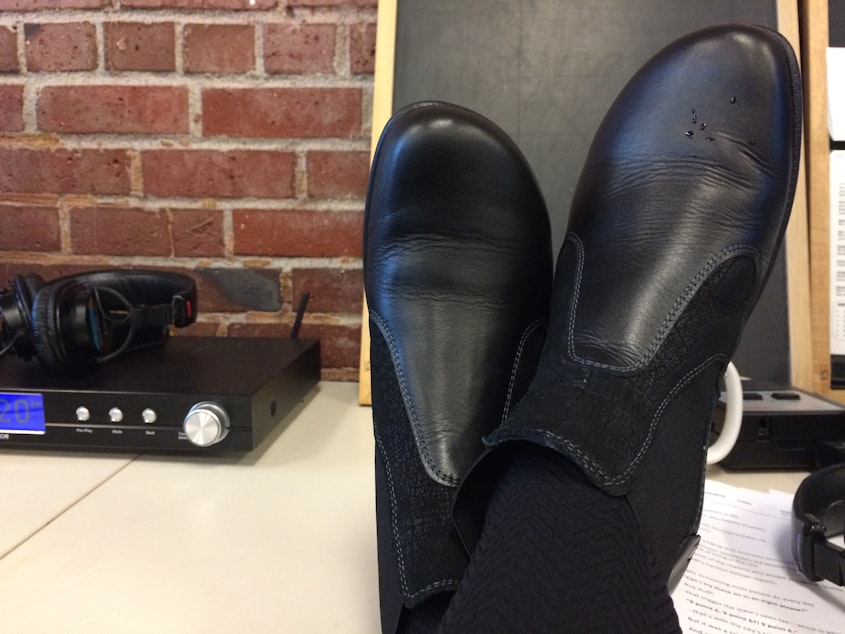Broke? Taxes On These Shoes Are Another Reason Why

Seattle’s surging economy continues to cause concerns about affordability.
Monday afternoon, the Seattle Transit riders union held a rally to bring attention to the need for a more equitable standard of living in the city.
But some of the reasons why people struggle in Seattle are deeply ingrained.
KUOW’s Carolyn Adolph reports.
TRANSCRIPT
Sponsored
Take something most people do every day.
Adolph: “Can I try these on in an eight please?”
Salesperson: “Absolutely.”
Buy stuff! That triggers the state’s sales tax – which is what percent?
Salesperson: “9 point 6.”
Sponsored
Adolph: “9 point 6?!”
Salesperson: “9 point 6.”
That’s with the city’s sales tax piggybacking on it. But it was a sale! And resistance was futile.
Adolph: "These are no-brainers."
And at the cash register –
Sponsored
Adolph: “I paid how much for the tax?”
Salesperson: “$15.36.”
That's about the same as one hour’s work at Seattle’s minimum wage. It would have cost a few minutes to a software engineer. And that’s the thing about having a system based on a sales tax: People with low incomes pay proportionally more for the stuff of life.
A student buys toothpaste and notices the cost. A millionaire, not so much.
The Institute on Taxation and Economic Policy says Washingtonians with low incomes pay 16 percent of their wages to state and local governments. A big chunk of that is sales tax. People on the high end pay 2 percent of their overall wage.
Sponsored
Wilson: “The wealthiest households, corporations are not paying their fair share.”
This is Katie Wilson, who speaks for the Transit Riders Union. She says more people are struggling with the high cost of living in Seattle. They need help but public agencies don’t have the money.
Wilson: “And that’s why we don’t have the funding, as a city, as a county, as a state, to take care of these very basic needs.”
The Transit Riders Union will rally at city hall.
They say they will bring public attention to the need for a “dignified standard of living” in the city.
Sponsored
I’m Carolyn Adolph, KUOW News.
